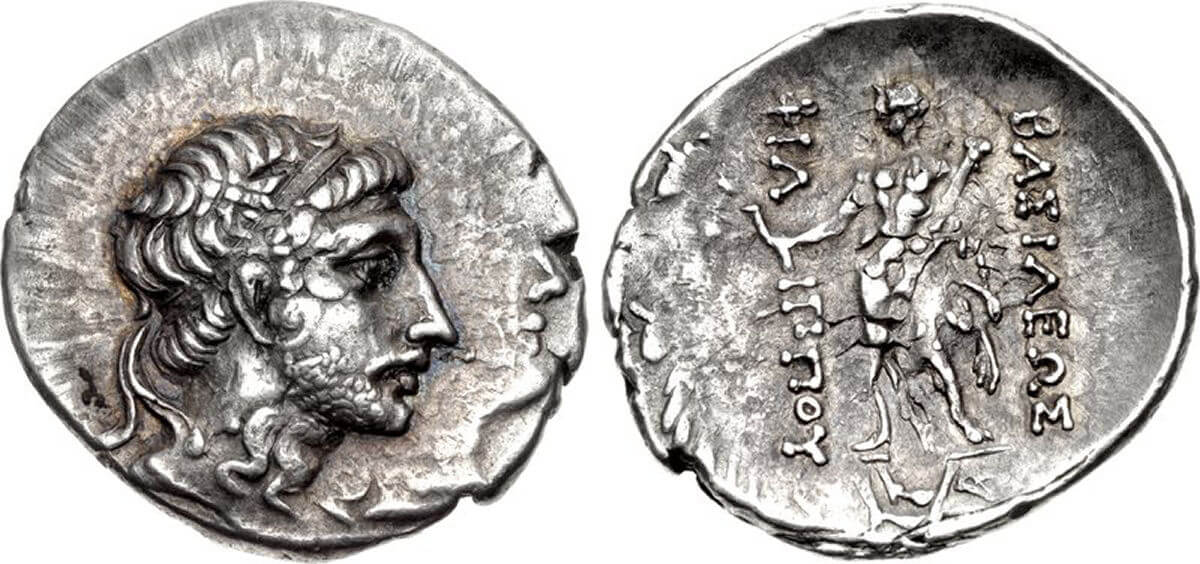Despite Rome's continual military success in Greece, Macedonia and against the Syrians, the political situation in the east remained largely unstable. The lack of a permanent presence of Roman legions allowed a certain level of independent thinking without fear of reprisal, and the appointment of corrupt and greedy Praetors to oversee the client states further fueled anti-Roman sentiment.
Cilician piracy was also a source of concern in the region, and the Romans did little to stop it. Pirates supplied slaves and contraband taken from Greek estates to Roman ports, fattening the pockets of the Senators and other influential Romans. The lack of support from the legions in this case certainly added to the thoughts of independence.
The resulting situation in the divided republics of Macedonia allowed for someone to fill the power void without Roman interference. In 149 BC, Andriscus, a pretender to the throne (which was abolished with Perseus) claimed to be a grandson of Philip V and son of Perseus. Without serious resistance from Rome or Macedonian locals, he reunited the four previously separated Republics and raised an army to prepare for the Romans.

Classical Numismatic Group, Inc. http://www.cngcoins.com, CC BY-SA 2.5, via Wikimedia Commons
A drachm coin featuring Andriscus, overstruck on a Roman denarius coin
The first small force sent against him, under the Praetor Publius Juventius Thalna in 149 BC, was defeated, and Andriscus pushed his domain to include all of Thessaly.
The Senate, realizing that it was time to finally put an end to this unstable situation (while at the same time preparing to end any thought of Carthaginian resurgence), authorized a new army, commissioned under the Praetor Quintus Caecilius Metellus.
Metellus swiftly put down the revolt, and crushed any and all Macedonian resistance. By 148 BC, Macedonian independence had come to a complete end. Andriscus, his army destroyed, was forced out of the region. The Romans now officially made Macedonia, along with Epirus, their first eastern provinces, and Metellus was awarded the cognomen Macedonicus for his victories.
While Metellus Macedonicus was busy in Macedonia, however, the Greeks sought to take advantage, and led a semi-revolt of their own. Already in dispute with Rome over their annexation of Sparta into the Achaean league, and with pro-independence leaders in place, discord in the region continued.
Critolaus, one of these pro-independence leaders, was appointed dictator in Corinth, and Corinthian forces began incorporating several nearby city-states into its own territory. Envoys dispatched from Rome to bring order to the situation were mistreated and rejected. Once again, the Roman army was on the move.
Fresh from his victory in Macedon, Metellus moved south to quell these fresh Greek revolts. At Locris, Critolaus and his army were defeated, but Greek resistance continued. In 146 BC, Macedonicus had been recalled to Italy (to receive his cognomen) and the Roman forces were put under the command of Lucius Mummius (later Archaicus for his deeds in Greece). Mummius led a successful and brutal campaign, crushing the Greeks wherever he faced them.
The Leagues of the Achaeans, Phocians and Boeotians were all shattered, and resistance of the Greek people to Roman rule was put to an end. To teach them a lesson, Mummius was ordered to attack Corinth directly, as a show of force and to set an example (much like the fate Epirus faced for helping Perseus of Macedon at the conclusion of the Third Macedonian War).
Later that year, Corinth was besieged and eventually burned to the ground, with its captured inhabitants sold off into slavery. Weapons and armor of locals throughout the region were seized, and local militia activity was outlawed. While the Romans didn't yet incorporate Achaea into an official province, the governor of Macedonia was given formal charge of watching over the Greeks from that nearby proximity.
The original nations of the Hellenistic world were now a permanent part of the Roman Empire. The control of the entire Greek peninsula only took about 80 years, stemming from the initial political pressures of the Punic Wars, and required relatively minor military intervention.
The Romans, as they had done so many times in the past, and would continue to do for centuries, allowed their power of influence to keep opposing factions at war with each other, until such time as they were all ripe for complete subjugation.
Only a few years later, in 133 BC, this influence worked to the Roman's advantage again when Attalus III of Pergamum - a long-time Roman ally throughout these Macedonian, Syrian and Greek wars - ceded his Kingdom in Asia Minor to the Roman Senate.
This event, which not only granted Rome an extremely wealthy new province, provided the catalyst which would eventually open the entire east to Roman expansion and conquest.
Punic Wars and Expansion - Table of Contents
- First Punic War
- Illyrian Wars
- Conquest of Cisalpine Gaul
- Second Punic War
- First Macedonian War
- Second Macedonian War
- Syrian War
- Third Macedonian War
- Fourth Macedonian War and the Achaean War
- Third Punic War
Did you know...
After Alexander's death, Cilicia was long a battleground of rival marshals and kings, and for a time fell under Ptolemaic dominion, but finally under that of the Seleucids.



